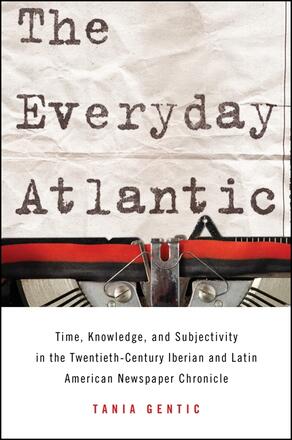
The Everyday Atlantic
Time, Knowledge, and Subjectivity in the Twentieth-Century Iberian and Latin American Newspaper Chronicle
Alternative formats available from:
Rethinks the concepts of nation, imperialism, and globalization by examining the everyday writing of the newspaper chronicle and blog in Spain and Latin America.
Description
In The Everyday Atlantic, Tania Gentic offers a new understanding of the ways in which individuals and communities perceive themselves in the twentieth-century Atlantic world. She grounds her study in first-time comparative readings of daily newspaper texts, written in Spanish, Portuguese, and Catalan. Known as chronicles, these everyday literary writings are a precursor to the blog and reveal the ephemerality of identity as it is represented and received daily. Throughout the text Gentic offers fresh readings of well-known and lesser-known chroniclers (cronistas), including Eugeni d'Ors (Catalonia), Germán Arciniegas (Colombia), Clarice Lispector (Brazil), Carlos Monsiváis (Mexico), and Brazilian blogger Ricardo Noblat.
While previous approaches to the Atlantic have focused on geographical crossings by subjects, Gentic highlights the everyday moments of reading and thought in which discourses of nation, postcolonialism, and globalization come into conflict. Critics have often evaluated in isolation how ideology, ethics, affect, and the body inform identity; however, Gentic skillfully combines these approaches to demonstrate how the chronicle exposes everyday representations of self and community.
Tania Gentic is Assistant Professor of Spanish at Georgetown University.
Reviews
"Gentic's book is original, engaging and thought-provoking, and although her argument is complex, she takes care to orientate her reader, through regular clarification of her aims and the careful subdivision of chapters." — Bulletin of Spanish Studies